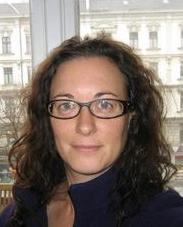![]() Kerrie is working on the history of the term / concept of community, in relation to practices in the UK and is also working on the Dartmoor ecosystem with Jane Milling
Kerrie is working on the history of the term / concept of community, in relation to practices in the UK and is also working on the Dartmoor ecosystem with Jane Milling
I am senior lecturer in Drama at the University of Exeter. With Fiona MacBeth I coordinate an MA in Applied, Community and Socially-Engaged Performance. I have a long interest in forms of participatory performance, having completed a PhD on contemporary Australian performance ensemble, The Sydney Front (University of Sydney, Australia). Prior to UK relocation in 2007, I was a lecturer in Drama at the University of Newcastle, Australia. As a member of a research group on Performance, Community Development and Social Change, I undertook practice-based research in community performance with local government, arts, voluntary/charity, and state government department (housing, health) monies. I am currently finalizing a Palgrave Macmillan monograph exploring meanings of community in community-based performance practice, due for publication in 2015.
I have been involved in several RCUK Connected Communities projects including Harnessing Creative Clusters to the Digital Economy (PI), Participatory Arts and Health (co-I) and Remaking Society (co-I). In 2012/2013 I was in receipt of an AHRC Fellowship entitled ‘Enacting Community: Critical Histories and Theories of Community-based Theatre and Performance Practice’. I have been invited to share this research with diverse audiences. For instance, as a panelist at the Community Oriented Arts for Social Transformation (COAST) Festival at acta Community Theatre, Bristol, 2012, and via the opening address for the COAST meeting at Expedition Metropolis in Kreuzberg, Berlin. I was also invited to lead the research seminar programme for the International Community Arts Festival (ICAF) in Rotterdam, 2014.
I have two main focuses on the UEP project. Firstly, working on the ‘Histories’ package examining the term/concept of community, particularly with reference to the development of community cultural practices in the UK.
I am also working on the Dartmoor ecosystem to explore cultural participation in particular places in and across Dartmoor villages through mixed methods (fieldwork, place mapping/surveying, interview, ethnography, etc.). I have a tie to a community theatre company on Dartmoor, MED Community Theatre based in Moretonhampstead, and that relationship is taking the ecosystem research in some interesting directions. We are currently hoping to develop a multi-sited ethnography which may follow participants in a community theatre company as they go about their everyday life, or capture oral histories of cultural participation with community theatre members. It seems to me that community theatre participants are an interesting group to follow since their participation straddles formal and informal modes of cultural practice and adds a degree of complexity to definitions of participation. Community theatre participants, for instance, do not merely attend or consume but actively make or produce cultural products and social meaning. I’m interested in the gap between participation as a measurement tool through which public/private funding bodies “can determine and articulate the impact of the arts on culture, economy, and place” (Rohd 2013, p.25) and the experience of participating in participatory cultural practices debated within Performance Studies discourse (see Bishop 2006a, 2006b, 2012; Kwon 2002; Kester 2004, 2006; Jackson 2011; Rohd 2013).
 I am interested in furthering understanding of participatory cultural practices beyond the so-called civilising role the ‘arts’ are sometimes said to have. I believe that participatory cultural practices are not merely aesthetic, but also educational, politically radical, publically supporting, healthful ones. Obviously I’m lucky to do a job that crosses over with creative interests. Hobbies are outdoor activities do-able with a 5 year old – walking, cycling, gardening, painting, rockpooling, swimming, etc.
I am interested in furthering understanding of participatory cultural practices beyond the so-called civilising role the ‘arts’ are sometimes said to have. I believe that participatory cultural practices are not merely aesthetic, but also educational, politically radical, publically supporting, healthful ones. Obviously I’m lucky to do a job that crosses over with creative interests. Hobbies are outdoor activities do-able with a 5 year old – walking, cycling, gardening, painting, rockpooling, swimming, etc.
